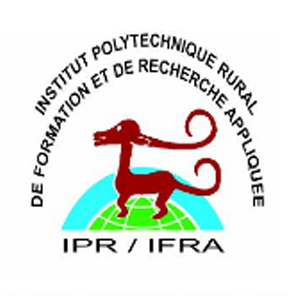Doctoral Programme Climate Change and Agriculture
Overview
In Africa, the agricultural sector contributes about 30% of the continent’s GDP and provides a source of livelihood for almost 70% of Africans. The agricultural sector has its own problems such as rapid urbanization pushing more fertile arable land out of production, competition with subsidized farmers in Western countries, low productivity of lands, use of obsolete equipment and many more. Compounding the problems of the African farmer are impacts of climate change, increased variability in rains, higher overall temperatures, and storm events that are more frequent and/or more intense.
African Agriculture vulnerable to Climate Change Effects
Agriculture in Africa is climate-dependent, generally rain fed. This makes the continent highly vulnerable to climate change. The Intergovernmental Panel on Climate Change (IPCC), projects (1) that 75-250 million people in Africa will face severe water stress by 2020 and 350-600 million people by 2050 due to climate change; (2) that agricultural production in Africa will be severely compromised due to loss of land, shorter growing seasons, and more uncertainty about what and when to plant due to climate change; (3) a possible 50% reduction in yields from rain-fed crops by 2020 in some North African countries, and (4) crop net revenues likely to fall by as much as 90% by 2100 in South Africa.
Adaptation Strategies to Changing Climate Conditions
Crops, livestock and fisheries are highly dependent on specific climate conditions. Trying to understand the overall effect of climate change on our food supply can be difficult. Increases in temperature and carbon dioxide (CO2) can be beneficial for some crops in some places. But to realize these benefits, nutrient levels, soil moisture, water availability, and other conditions must also be met. Changes in the frequency and severity of droughts and floods could pose challenges for farmers and ranchers. Therefore, training of highly qualified human resources (having relevant infrastructures and equipment) constitutes one of the major adaptation strategies to climate change.
Objectives
- Train experts for West African countries in anticipating the effects of climate change
- To define and to implement strategies towards adaptation and mitigation to the negative effects of climate change in agriculture
- Strengthen the synergistic relationship between the West African universities and the partnership with German universities
- GRP students visiting the WASCAL research site in Dano, Burkina Faso
Curriculum
The programme comprises of a six-month teaching period with courses in research methodology, scientific writing, statistics and modeling tools and specific courses from the fields of agricultural production and management. During the second part students plan and carry out their research, analyze their data and finalize their theses.
Institut Polytechnique Rural de Formation et de Recherche Appliquée (IPR-IFRA) and the University of Cape Coast (UCC)
The Institut Polytechnique Rural de Formation et de Recherche Appliquée (IPR-IFRA) of Katibougou (IPR/IFRA) is an institution that trains professionals in the area of agriculture since 1897. The institute has trained thousands of technicians and engineers in all areas of agricultural science including agriculture, forestry, animal sciences, and rural economics. It is the main institution of tertiary education in the area of agriculture in Mali. IPR/IFRA also conducts research in the areas of agro-physio-genetics and plant biotechnology, soil science, ethno-botany plant protection, animal production systems, forestry, agroforestry and environmental protection, economics and social sciences, innovation systems, and renewable energies (biogas, biofuel). IPR/IFRA will collaborate with the Institute Superieur de Formation et de Recherche Appliquee (ISFRA) of the University of Bamako to implement the Doctoral Programme.

Contact Information
Director
Dr. Yacouba Diallo
Email : yacouba.diallo@ipr-ifra
Deputy
Dr. Benjamin Kofi Nyarko
University of Cape Coast
Email: bnyarko@yahoo.co.uk
Tel. +233 206640183
Prof Diakaridia Traore
Email : traorediakaridia1998@yahoo.fr

